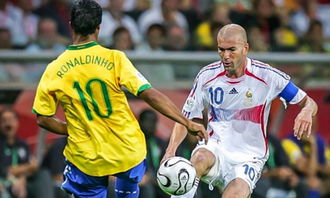欧冠22-23赛程
196
2024 / 07 / 19
Football, known as the beautiful game, captivates millions worldwide with its thrilling matches, passionate fans, and prestigious tournaments. Among these, two tournaments stand out as the pinnacle of international football: the UEFA European Championship (Euro) and the FIFA World Cup. Each tournament has its unique charm, history, and significance in the world of football, making them both ultimate events in their own right.
The UEFA European Championship, commonly referred to as the Euro, is a quadrennial tournament organized by the Union of European Football Associations (UEFA). First held in 1960, it has since grown into one of the most prestigious international football competitions globally. The tournament features the top national teams from Europe, showcasing the continent's finest football talent.

The Euro has evolved significantly since its inception. Initially featuring just four teams, the tournament expanded over the years to include more participants, with the current format accommodating 24 teams since 2016. This expansion has allowed more nations to participate, enhancing both the competitiveness and inclusivity of the tournament.
Throughout its history, the Euro has witnessed numerous memorable moments that have etched themselves into football folklore. From thrilling finals to unexpected upsets and outstanding individual performances, each edition of the Euro has provided fans with unforgettable experiences.
The Euro not only influences the footballing landscape but also plays a crucial role in promoting unity and camaraderie across Europe. It serves as a platform for nations to showcase their footballing prowess while celebrating cultural diversity and national pride.
The FIFA World Cup stands as the ultimate event in international football, transcending borders and cultures to unite fans worldwide in a celebration of the sport. Organized by FIFA, the tournament dates back to 1930 and has grown exponentially in stature and popularity over the decades.
Unlike the Euro, which is confined to European nations, the World Cup features teams from all continents, making it a truly global spectacle. This diversity not only adds to the tournament's appeal but also underscores football's status as the world's most popular sport.
The World Cup has seen iconic moments that define football history, such as Brazil's dominance in the 1970s, Maradona's 'Hand of God' goal in 1986, and Germany's resurgence in recent years. These moments not only shape the tournament's narrative but also resonate with fans worldwide, regardless of nationality.
Beyond sports, the World Cup leaves a lasting legacy on host nations and the global football community. It fosters international cooperation, promotes tourism, and inspires future generations of footballers. The tournament's ability to transcend sporting boundaries and ignite passion among diverse cultures underscores its unparalleled impact.
The Euro focuses exclusively on European teams, while the World Cup includes teams from every continent, offering a broader representation of global football talent.
Both tournaments hold immense prestige within their respective contexts. The World Cup's longer history and global reach give it a broader tradition, while the Euro's intense regional rivalries and concentrated talent pool create a unique atmosphere.
While the Euro fosters a sense of European unity and pride, the World Cup acts as a
